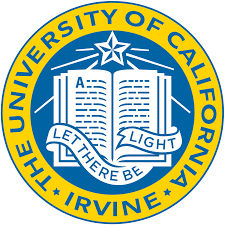预约演示
更新于:2025-12-25

Massachusetts Institute of Technology
更新于:2025-12-25
概览
标签
肿瘤
感染
其他疾病
小分子化药
寡核苷酸
ASO
疾病领域得分
一眼洞穿机构专注的疾病领域
暂无数据
技术平台
公司药物应用最多的技术
暂无数据
靶点
公司最常开发的靶点
暂无数据
| 排名前五的药物类型 | 数量 |
|---|---|
| 小分子化药 | 15 |
| ASO | 2 |
| 预防性疫苗 | 2 |
| 基因编辑 | 2 |
| 寡核苷酸 | 2 |
关联
37
项与 Massachusetts Institute of Technology 相关的药物靶点 |
作用机制 GD2抑制剂 |
非在研适应症- |
最高研发阶段临床1期 |
首次获批国家/地区- |
首次获批日期- |
作用机制- |
在研适应症 |
非在研适应症- |
最高研发阶段临床前 |
首次获批国家/地区- |
首次获批日期- |
靶点 |
作用机制 MAX modulators |
在研机构 |
原研机构 |
在研适应症 |
非在研适应症- |
最高研发阶段临床前 |
首次获批国家/地区- |
首次获批日期- |
111
项与 Massachusetts Institute of Technology 相关的临床试验NCT07167719
Resilience in Reentry: Cognitive-Behavioral Resilience Training for Parolees With Adjustment Challenges
This pilot study assesses the feasibility and acceptability of delivering a brief Cognitive-Behavioral Resiliency treatment to a population of recently released parolees. This study will also give a preliminary indication if the treatment is associated with reliable improvements in adjustment symptoms and well-being for parolees.
开始日期2025-12-01 |
申办/合作机构 |
NCT05591404
Investigating the Effects of Social Stress on Brain Imaging
The purpose of this study is to examine whether experiencing a social stressor prior to the collection of neuroimaging measures is associated with differences in brain activation in healthy participants.
开始日期2025-11-17 |
申办/合作机构 |
NCT06853665
A Pharmaco-Imaging Trial of Mixed Amphetamine Salts for the Treatment of ADHD in Intellectually-intact Youth With Autism Spectrum Disorder
The investigators are conducting a 10-week brain imaging and medication study. They are doing the research to study the response of Attention-Deficit/ Hyperactivity Disorder (ADHD) in youth with Autism Spectrum Disorder (ASD) on extended-release formulation of mixed amphetamine salts (MAS) (also know as Adderall XR). The investigators also want to find out if taking MAS has any effect on the brains of children and adolescents with ADHD and ASD. This study will help researchers better understand how the use of MAS to treat ADHD effects children and adolescents with ASD. The investigators will compare MAS to a placebo. The placebo will look exactly like the MAS capsules but will contain no MAS. During this study, participants may get a placebo instead of MAS. Placebos are used in research studies to see if the study results are due to the study drug or due to other reasons.
Participants with ASD and ADHD will complete 4-weeks of treatment with the study medication or placebo. They will complete bi-weekly study visits virtually via a telemedicine platform with the study doctor and complete questionnaires. On alternating weeks, they will meet with a Massachusetts General Hospital (MGH) study team member to discuss medication adherence and potential side effects. Participants will have the option to attend all study visits in-person if participants prefer. They will also complete baseline and endpoint Magnetic Resonance (MR) scan visits at Massachusetts Institute of Technology (MIT). During the MR Scan visits, they will complete a series of tasks to measure inattention, impulsivity, reward sensitivity, decision-making, and working memory.
Participants without ADHD or ASD will complete eligibility screening with MGH. If eligible, they will be invited to baseline and endpoint MR scan visits at MIT. During the MR Scan visits, they will complete a series of tasks to measure inattention, impulsivity, reward sensitivity, decision-making, and working memory.
Participants with ASD and ADHD will complete 4-weeks of treatment with the study medication or placebo. They will complete bi-weekly study visits virtually via a telemedicine platform with the study doctor and complete questionnaires. On alternating weeks, they will meet with a Massachusetts General Hospital (MGH) study team member to discuss medication adherence and potential side effects. Participants will have the option to attend all study visits in-person if participants prefer. They will also complete baseline and endpoint Magnetic Resonance (MR) scan visits at Massachusetts Institute of Technology (MIT). During the MR Scan visits, they will complete a series of tasks to measure inattention, impulsivity, reward sensitivity, decision-making, and working memory.
Participants without ADHD or ASD will complete eligibility screening with MGH. If eligible, they will be invited to baseline and endpoint MR scan visits at MIT. During the MR Scan visits, they will complete a series of tasks to measure inattention, impulsivity, reward sensitivity, decision-making, and working memory.
开始日期2025-10-15 |
申办/合作机构 |
100 项与 Massachusetts Institute of Technology 相关的临床结果
登录后查看更多信息
0 项与 Massachusetts Institute of Technology 相关的专利(医药)
登录后查看更多信息
88,394
项与 Massachusetts Institute of Technology 相关的文献(医药)2026-02-01·JOURNAL OF AFFECTIVE DISORDERS
Comorbid anxiety predicts lower odds of MDD improvement in a trial of smartphone-delivered interventions
Article
作者: Costilla-Reyes, Omar ; Talbot, Morgan B ; Lipschitz, Jessica M
Comorbid anxiety disorders are common among patients with major depressive disorder (MDD), but their impact on outcomes of digital and smartphone-delivered interventions is not well understood. This study is a secondary analysis of a randomized controlled effectiveness trial (n=638) that assessed three smartphone-delivered interventions: Project EVO (a cognitive training app), iPST (a problem-solving therapy app), and Health Tips (an active control). We applied classical machine learning models (logistic regression, support vector machines, decision trees, random forests, and k-nearest-neighbors) to identify baseline predictors of MDD improvement at 4 weeks after trial enrollment. Our analysis produced a decision tree model indicating that a baseline GAD-7 questionnaire score of 11 or higher, a threshold consistent with at least moderate anxiety, strongly predicts lower odds of MDD improvement in this trial. Our exploratory findings suggest that depressed individuals with comorbid anxiety have reduced odds of substantial improvement in the context of smartphone-delivered interventions, as the association was observed across all three intervention groups. Our work highlights a methodology that can identify interpretable clinical thresholds, which, if validated, could predict symptom trajectories and inform treatment selection and intensity.3.
2026-02-01·CURRENT OPINION IN BIOTECHNOLOGY
Design principles for adaptive and evolving engineered living materials
Review
作者: Tibbitt, Mark W ; Cui, Yifan ; Lu, Timothy K ; Tang, Tzu-Chieh
Engineered living materials (ELMs) combine living cells, typically microorganisms, such as bacteria, yeasts, or filamentous fungi, with structural carrier matrices to form systems capable of sensing, growth, and self-repair. Most current designs emphasize programming the microbes to render otherwise static materials functional. A less explored dimension is leveraging reciprocal microbial-material interactions themselves to engineer adaptive and evolving living materials as integrated systems. Achieving such dynamic behavior requires understanding how support matrices influence microbial behavior and how cells, in turn, reshape material properties over time. This review outlines key modes of cell-material interactions as a framework for expanding the functional toolbox of ELMs and for creating sustainable and programmable materials that respond to their environments and evolve.
2026-02-01·JOURNAL OF EXPERIMENTAL CHILD PSYCHOLOGY
US and Korean children prefer equality, but Korean children are more tolerant of ingroup-favoring allocations
Article
作者: Warneken, Felix ; Jung, Seul-Kee ; Lee, Young-Eun ; Song, Hyun-Joo
It has been shown that with age, US children become more likely to prefer equal over unequal allocations and do so in an impartial way for both ingroup and outgroup members. However, it is possible that such findings are based on norms of impartiality that are more common in Western societies than in collectivistic societies which place a greater emphasis on group loyalty. For example, children from a collectivist society might endorse ingroup-favoring allocations more than equal allocations or outgroup-favoring ones. In this pre-registered study, n = 205 5- to 12-year-olds from the US and South Korea saw hypothetical scenarios in which a child divided resources (e.g., chocolates) between their ingroup and outgroup. Group membership was manipulated using a minimal group paradigm based on team colors. Children evaluated equal, ingroup-favoring, and outgroup-favoring allocations. Results showed that children from both samples overall evaluated equal allocations most positively. However, Korean children judged ingroup-favoring allocations more acceptable and less deserving of punishment than did US peers. Both results were consistent across ages, suggesting the developmental stability of these effects from middle childhood into early adolescence. We discuss how the current results provide insight into cross-cultural differences in fairness norms.
3,122
项与 Massachusetts Institute of Technology 相关的新闻(医药)2025-12-25
·漫游药化
每一个不曾起舞的日子
都是对生命的辜负
……
二战时期,战火连天,疾病肆虐
大面积的感染,难以控制的疟疾
疾病,成了比战争更可怕的恶魔
在很多地方,抗疟疾药,成了救命的东西
而大名鼎鼎的奎宁(俗称金鸡纳霜),是当时唯一能治疗疟疾的药物
可战争期间,天然的奎宁供不应求
眼看着数百万人正深陷疟疾的威胁之中
这时候,他站了出来,成了大家的保护神
金鸡纳
维生素B12,最后一个被发现的B族维生素
最复杂的天然物质之一,有机合成界的珠穆朗玛峰
这种人体必须的维生素,却只有微生物才能生产
提取工艺复杂,产量低,价格高昂,供不应求
可却始终没有人能合成出那么复杂的物质
又是他,带领着100多位化学家一起攻关
攀登上了这座有机合成界令人望而生畏的高峰
他是有机合成界的“蓝精灵”
是因为实在偏科得太严重而被MIT退学的学生
更是有史以来最伟大的化学家之一
他是有机合成之父——罗伯特·伯恩斯·伍德沃德(Robert Burns Woodward)
…
伍德沃德出生在美国马萨诸塞州的波士顿
他从小就特别喜欢蓝色,还特别喜欢化学
当他看到要用来和生石灰混合来消毒的硫酸铜溶液的时候
那透明澄澈的蓝,那纯净美好的蓝,他简直被迷住了
刚上小学,当同龄的小伙伴只想着放学去哪里玩的时候
他就买了各种瓶瓶罐罐,在自家的地下室里捣鼓起了他的“化学实验室”
在他上高中之前,就已经把学校里通用的有机化学实验教材大部分的实验做完了
实验水平秒杀一众高中的师兄师姐
更重要的是,他收集到了几十种迷人的蓝色溶液、蓝色粉末…
德国强大的科学研究实力让年幼的伍德沃德心驰神往
可才11岁的他,也不太可能去到德国学些什么东西
不过嘛,德国有驻波士顿的领事馆
小小年纪的伍德沃德找到了领事馆的总领事
通过总领事的帮助,他拿到了只发表在德国期刊上的最顶级研究论文
当然,也学到了很多前沿的化学知识,做了更多的实验,拿到了更多的“化学蓝”
德国驻华盛顿大使馆
1933年,素有“神童”之称的伍德沃德在16岁的时候就考入了美国最出名的理工类大学——MIT(麻省理工学院)
当时的班上,除了他,都是20岁上下的大哥哥大姐姐
而年纪最小的他,从入学起就被寄予了厚望
可是伍德沃德实在是太喜欢化学了
他将自己所有的精力都投入了化学
以至于1年之后,除了化学,他所有的科目统统挂了科
MIT竟然也不接收偏科生
在MIT的校史上何曾出现过成绩如此糟糕的学生
学校二话不说,就把伍德沃德开除了
这可急坏了MIT的化学系的各位教授们
伍德沃德可是他们见过的最有化学天赋的学生
教授们聚在一起讨论了半天,给校长写了一封联名信,希望能留下这个天赋异禀的学生
第二年,18岁的伍德沃德重新回到了MIT的校园
这一回,学校为了培养他,给他开了小灶,专门安排了许多课程
伍德沃德也没有辜负大家的期望,1年的时间,他拿到了学士学位
再一年的时间,他又拿到了博士学位
当他20岁那年通过了博士论文答辩,拿到博士学位证的时候
他的很多同学(第一次入读MIT时候的同学),甚至连学士学位都还没拿到
普通人要读6年才能拿到的博士学位,他用1年就拿到了
这在MIT也是绝无仅有的
博士毕业后的伍德沃德,在哈佛大学执教
于是,哈佛大学出现了这样一幕
一位20岁的讲师在讲台上给22、23岁的学生们上课
伍德沃德博士毕业不久后,第二次世界大战拉开了序幕
在日军的占领下,来自东南亚国家的奎宁变得更为稀缺
战争,让疟疾的传播变得更为迅速与广泛
奎宁的供不应求,将数百万人的性命暴露在疟疾的威胁下
一场随时可能爆发的疟疾狂潮让所有的人都忧心不已
罹患疟疾的儿童
这时,伍德沃德做出了一个惊人的决定,人工合成奎宁
听到他要合成奎宁,他的同事们都惊呆了
纵然他是个“神童”,也不能说出什么大言不惭的话吧
上世纪40年代,有机化学总体上还是一门实验学科
当时的人们普遍认为,像奎宁这样的复杂分子,是不可能被合成出来的
奎宁结构式
伍德沃德才不在乎同事们的嘲笑
他来到了实验室里,一心思索着要如何合成奎宁
苦苦想了好几天,伍德沃德仍然一筹莫展
心情烦躁不堪的他一气之下把家里所有的东西都换成了蓝色
墙壁、窗帘、床单、桌子…宁静而平和的蓝色,似乎真的让他静下了心
他躺在蓝色的床上,看着蓝色的天花板,进入了梦乡
蓝精灵般的伍德沃德
或许是他钟爱的蓝色真的给了他灵感
当伍德沃德再一次回到实验室的时候
他照着自己的想法探索了一阵
那被说成不可能能人工合成的奎宁出现在了他的眼前
伍德沃德在实验室合成奎宁
55道复杂的程序,繁琐的制备方法
纵然当时的合成工艺无法进行奎宁的工业化生产
但不管怎么说,这是化学合成的一个里程碑
紧接着,伍德沃德的灵感一个接着一个蹦出来
胆固醇、可的松、叶绿素、秋水仙碱…
一大堆之前只能从天然物质中提取的化合物在他的实验室里诞生
他告诉人们,只要仔细运用物理有机化学的原理,有精细的策划,天然产物是可以通过人工的方法合成出来的
伍德沃德与叶绿素(结构式)
伍德沃德的工作更像是艺术
从那以后,合成的化学家们总是力求实用与美的结合
那个时代,被人们称为“伍德沃德时代”
他还有着非同寻常的对化学的直觉
上世纪60年代的时候,土霉素的结构式鉴定是业界的难题
众多化学家们都投入到了其结构式的研究中
各种研究数据繁多而杂乱,令人毫无头绪
伍德沃德拿了张卡片,将数据一个个罗列出来
静思良久,竟然在卡片上将土霉素的结构式一处不错的写了下来
惊呆了他的同事、朋友和众多的化学家们
土霉素结构式
1965年,凭借着在合成化学上的成就
陪跑了131次(获得过131次诺贝尔奖提名)的伍德沃德终于上位
拿到了当年的诺贝尔化学奖
就在他去领奖的路上,看着车外蓝色的天空
头孢霉素的合成方法一点点在他的脑海里拼凑了出来
于是,他硬生生的将获奖感言变成了制备头孢霉素的学术讲座
他说他已经为头孢霉素设计了切实可行的合成方法,颁奖后,很快就能将它做出来
台下的观众,台上的颁奖嘉宾,都被他说得一愣一愣的
拿到了诺贝尔奖的伍德沃德并没有就此停止自己的研究
而是向着更为艰巨复杂的化学合成方向前进
这一次,他的目标是化学合成界的珠穆朗玛峰——维生素B12
现在,维生素B12不过是药店卖的几块钱一瓶的小药片
可是在几十年前,当我们还不能合成维生素B12的时候
这种极为重要的药物,只能从动物的肝脏中提取,价格昂贵,供不应求
自然界中的维生素B12都是微生物合成的,高等动植物不能制造维生素B12。自然界中的维生素B12主要是通过草食动物的瘤胃和结肠中的细菌合成的的,因此,其膳食来源主要为动物性食品,其中动物内脏、肉类、蛋类是维生素B12的丰富来源。
维生素B12的主要生理功能是参与制造骨髓红细胞,防止恶性贫血;防止大脑神经受到破坏。
维生素B12的缺乏,会导致神经系统的损伤与恶性的贫血
精神抑郁、睡眠质量低下、记忆力下降…
对于维生素B12缺乏的人群来说,日子过得异常艰难
经过研究,伍德沃德发现,维生素B12有181个原子
这些原子在空间呈魔毡状分布,性质极为脆弱
强酸、强碱、高温,都会让维生素B12分解
这给维生素B12的合成造成了极大的困难
要想按照之前的方法,一步步的合成维生素B12,基本是天方夜谭
伍德沃德显然也知道这一点
只有创立新的合成技术,才可能攀上这座高峰
维生素B12结构式
伍德沃德觉得,自己需要再多一些的灵感
而他的灵感来源…对,就是“化学蓝”
他花了大价钱买了一辆蓝色的车,里里外外都涂成了蓝色
甚至还把自己的停车位也刷成了蓝色
他坐在车里,被蓝色包裹着,感觉好极了
这时候,灵感真的来找他了
既然不能一步步合成,那分开来,一部分一部分的合成,再拼起来,这不就行了吗
而这种方法,正是如今通用的合成复杂有机化合物的方法
有了初步的想法,还要设计合成的路线
毕竟维生素B12那么复杂,不是说一说就能合成的东西
近千个复杂的有机合成实验,11年的时间
伍德沃德终于完成了维生素B12的合成工作
维生素B12的全合成
在合成维生素B12的过程中
他还与他的合作者霍夫曼一起,提出了分子轨道对称守恒原理
这个理论,简单直观地揭示了许多有机化学反应的过程
而这个理论的创立,使霍夫曼、福井谦一同获得了1981年的诺贝尔化学家
若非伍德沃德那时候已经不在人世
他会成为为数不多的获得过两次诺贝尔奖的人
有机合成,需要长时间的守护、观察和记录
那时,伍德沃德每天的休息时间不超过4个小时
而除了睡觉和吃饭,他所有的时间都在实验室里工作
他是个出了名的工作狂魔
一辈子的时间都献给了化学研究
过于忙碌的生活让他无暇顾及自己的家庭
即便他着实有着不低的颜值,可他的3段婚姻都无疾而终
500多名学生,200多名博士与博士后
他的学生已经遍布世界各地
多个国家的院士,各种公司的技术指导
他身上的荣誉更是数不胜数
1979年,伍德沃德积劳成疾,心脏病突发而与世长辞,终年62岁
在他辞世前,他仍然念念不忘他的有机合成工作,记挂着他那还没合成完的赤霉素
为了完成他的心愿,他曾经的学生义无反顾的接替了他的研究组,完成了赤霉素的合成
正如伍德沃德所说"合成,是一门艺术"
艺术需要被传承和创新
2025-12-24
·百度百家
2025年11月,在麻省理工学院一栋不起眼的办公楼里,一场创业项目路演正在进行。台上,一位名叫山姆的年轻数学家兼联合创始人,正向台下的风险投资人们演示他们的AI药物发现平台。他没有展示花哨的3D分子动画,而是直接调出了一个谷歌Colab(一个基于网页的Python编程环境)界面。屏幕上,几行简洁的Python代码实时运行着,从数据库中自动检索、筛选化合物,并预测其与特定疾病靶点的结合能力。
“我们解决问题的核心,”山姆强调,“不是另一套复杂的软件套件,而是一个开源的‘工具箱’和清晰的使用说明书。”他的团队,主要由物理、数学背景的研究者组成,利用Python将原本依赖昂贵商业软件和大量湿实验的药物发现流程,变成了可模块化编程、快速迭代的“计算工程”。
这一幕正日益频繁地在全球上演。一个深刻的范式转变正在发生:以数学家、物理学家和计算科学家为先锋的一群人,正用一种工程师式的、开源协作的思维,借助Python这把最普及的“瑞士军刀”,重新“编写”计算机辅助药物设计(CADD)的底层规则。他们并未发明新的化学原理,却通过降低技术门槛、提升迭代速度,悄然开辟了一条全新的药物研发赛道。
传统范式:一场持续半个世纪的“精英游戏”
要理解这场革命的颠覆性,我们必须回溯CADD最初的样子。自20世纪70年代概念兴起以来,药物设计长期依赖于两类核心软件。
一类是商业分子模拟套件,如薛定谔(Schrödinger)公司的Maestro、达索系统的BIOVIA。它们集成了从分子建模、动力学模拟到虚拟筛选的完整流程,界面友好但价格昂贵,一个完整的年度授权费用可能高达数十万甚至百万美元。这形成了第一道高墙:资金壁垒。
另一类是学术界开发的专精工具,例如用于分子对接的AutoDock。这类工具虽常免费,但其源码通常以C++或Fortran写成,追求极致的计算效率。对于大多数药物化学家或生物学家而言,想要修改其中的算法、整合新的评分函数,或将其嵌入自己的自动化流程,其技术难度不亚于重造轮子。这形成了第二道高墙:技术壁垒。
这两道墙共同塑造了一个长达数十年的传统范式:“黑箱”操作与“流水线”分工。生物学家负责提供靶点、药物化学家提出假设、计算专家操作“黑箱”软件给出预测、实验人员验证。流程线性且固化,软件本身是封闭的“孤岛”,不同环节间的数据流转和模型迭代缓慢而低效。
这一范式为药物发现奠定了坚实基础,但其成本高昂、迭代迟缓的痛点,正是新范式试图解开的死结。
范式转移:数学思维的“降维”重构
数学家与计算科学家切入这一领域的武器,并非更高级的化学理论,而是一种截然不同的方法论:“开源模块化”与“敏捷开发”。他们的核心思路是将复杂的药物发现难题,拆解为一系列标准化的计算子任务(如力场计算、对接、性质预测),并为每个子任务开发一个高质量、可自由组合的Python工具模块。
这种重构带来的第一个质变,是技术主权的转移。过去,商业软件将算法封装,用户只能被动接受结果。而现在,像OpenDock这样的开源框架,则将分子对接的全部“机关”——从采样算法(如模拟退火、遗传算法)到评分函数——彻底暴露在用户面前。研究者可以像拼装乐高一样,自由替换其中的任何一个部件。例如,他们可以轻松地将最新的深度学习评分函数整合进对接流程,而这在传统的C++框架中可能需要数月的工作量。
这种敏捷性在AI浪潮中展现出巨大的威力。例如,浙江大学团队提出的Delete模型,之所以能高效整合蛋白口袋三维结构信息,并完成从骨架跃迁到侧链修饰等一系列复杂任务,其底层实现与快速迭代,高度依赖于PyTorch等深度学习框架所提供的灵活环境。
第二个质变,是工作流程的自动化与民主化。药物发现涉及海量重复性计算,如对数百万个化合物进行虚拟筛选。传统模式下,这需要专家编写繁琐的脚本。如今,一系列开源工具链致力于实现“端到端”自动化。例如,美国国家癌症研究所开发的ATOM建模管道,能将分子结合数据自动转化为机器学习可用的数据集,大大降低了数据预处理的门槛。而名为Moldrug的Python包,则集成了分子生成、遗传算法优化和成药性评估,将“苗头化合物”到“先导化合物”的优化过程打包成一个可配置的自动化流程。
核心驱动力:Python的生态优势与“零边际成本”协作
这场重构何以可能?其核心驱动力在于Python语言本身及其所构建的庞大开源生态,构成了一个近乎“零边际成本”的知识与工具协作网络。
首先,Python的统一语法和丰富的科学计算库,抹平了学科间的“语法”鸿沟。药物设计涉及量子化学、统计力学、机器学习等多个领域,传统上各有其艰深的专业软件和编程语言。如今,一个数学家可以用NumPy处理矩阵运算(代表量子化学计算),用RDKit操作分子,用Scikit-learn构建QSAR模型,用PyTorch训练生成式AI模型,所有这些工作都可在同一个Python环境中,用同一种思维逻辑完成。这种统一性极大地促进了跨学科团队的深度协作。
其次,开源的“乐高式”生态,催生了爆炸式的创新组合。今天的药物研发者可以轻松地在开源模型库(如Hugging Face)上找到一个预训练的分子生成模型,用开源工具DeepChem加载和处理数据,并用开源可视化工具进行分析。一个生动的例子是,2024年发表在arXiv上的一篇论文,正是通过将分子生成对抗网络和标准化流模型集成到DeepChem中,构建了一个灵活、易用的分子生成管道,让即使不是机器学习专家的化学家也能利用最前沿的生成式模型。这种模块化的创新,使得任何个人或小团队都可以基于前人的“积木”,快速构建起强大的定制化研发平台。
最终,这一切带来了研发成本的颠覆性下降与试错容量的指数级提升。当软件成本从百万美元级别降至近乎为零,当修改一个算法从以“月”计变为以“小时”计,药物发现的“经济模型”就被彻底改变了。初创公司和小型实验室,可以像山姆的团队那样,用极低的成本运营一个高度自动化的虚拟筛选与优化平台,将宝贵的资金集中于最关键的实验验证上。这使得针对罕见病、个性化医疗等传统药企因经济考量不愿触及的“小众”领域,迎来了全新的研发可能性。
正在开启的未来:从“辅助工具”到“发现引擎”
数学家们用Python开启的这场静默革命,其影响正在超出效率提升的范畴,开始重塑药物研发的底层逻辑。CADD的角色,正从一个“辅助工具”向“发现引擎”演进。
最前沿的探索体现在三个方面。一是生成与设计的一体化。以浙江大学Delete模型为代表的新一代AI,不再仅仅是筛选现有化合物库,而是能根据靶点蛋白质的三维口袋,直接“构想”出具有高亲和力、高选择性的全新分子结构。这实现了从“大海捞针”到“按图造针”的飞跃。
二是模拟与实验的实时闭环。2025年,开源分子对接软件GNINA更新至1.3版本,不仅全面转向PyTorch框架以提升效率,更增强了对共价对接等复杂场景的支持。这类开源工具正变得如此强大和易用,使得“计算预测—实验合成—数据反馈—模型迭代”的闭环可以在数周甚至数天内完成,极大加速了先导化合物的优化进程。
三是研发模式的去中心化与民主化。开放的代码、公开的数据集和云上可得的计算资源,正在催生一个全球性的“开源药物发现”社区。任何人,只要有好的想法和编程能力,都可以参与到攻克某个疾病靶点的挑战中。这预示着一种更开放、更协作的未来科研图景。
结语
因此,数学家们用Python“开辟新赛道”的故事,本质上是一场关于权力、效率和创新的再分配。他们用开源的代码,拆解了商业软件构筑的知识与技术高墙;用模块化的工具,重组了传统研发僵化的线性流程;用“零边际成本”的协作生态,释放了全球研究者的创新潜能。
这并非意味着传统药物化学的经验与直觉不再重要,恰恰相反,计算工具的民主化,是为了让科学家能从繁琐重复的劳动中解放出来,将更多智慧倾注于最具创造性的假设与设计之中。未来的药物研发英雄,或许将是那些既深谙生命科学奥秘,又精通如何用代码将灵感转化为可测试分子的“跨界架构师”。而这场始于数学家键盘下的革命,其最终目标,正是让每一个对抗疾病的智慧火花,都能拥有被快速点亮和验证的机会。
2025-12-24
·今日头条
在人类与癌症漫长的博弈史上,我们不仅是在与失控的细胞战斗,更是在与一群精通伪装的“欺诈大师”对抗。长期以来,免疫疗法主要集中在解除T细胞的刹车机制上,但癌细胞总能找到新的藏身之所。如今,来自麻省理工学院(MIT)和斯坦福大学的一项突破性研究,终于揭开了癌细胞最后一道防线——一层甜蜜却致命的“糖衣”。
这项发表于《自然·生物技术》(Nature Biotechnology)的最新成果,展示了一种名为“AbLecs”的新型嵌合分子。它不仅能精准锁定肿瘤,还能强行剥离癌细胞用来蒙蔽免疫系统的糖蛋白屏障,为那些对现有疗法产生耐药性的患者点亮了新的希望。
破解“糖类密码”:超越PD-1的新战场
在过去的十年里,以PD-1/PD-L1抑制剂为代表的免疫检查点疗法彻底改变了肿瘤治疗的格局。它们就像是松开了免疫细胞被踩住的“刹车”,让T细胞得以重新杀伤肿瘤。然而,临床现实是残酷的:许多患者对这些药物毫无反应,或者在短暂缓解后迅速复发。科学家们意识到,肿瘤手中掌握着不止一套“刹车系统”。
麻省理工学院科赫综合癌症研究所的研究员杰西卡·斯塔克(Jessica Stark)与斯坦福大学著名化学生物学家卡罗琳·贝尔托齐(Carolyn Bertozzi)团队,将目光投向了一个更为隐秘的领域——糖生物学。
癌细胞表面覆盖着一层厚厚的糖分子,即聚糖。这并非普通的糖,而是一种包含特定“唾液酸”(sialic acid)结构的复杂糖衣。在微观层面,这层糖衣充当了一张伪造的“良民证”。人体的免疫细胞(如巨噬细胞和自然杀伤细胞)表面装备著名为Siglecs的受体,当这些受体触碰到癌细胞表面的唾液酸时,会接收到一个明确的生化信号:“我是自己人,别吃我。”
这种基于聚糖的免疫检查点机制,使得癌细胞能够在巡逻的免疫大军眼皮底下安然无恙地生长。虽然科学界早已知晓这一机制,但开发针对性的药物却困难重重。因为糖分子的结构过于复杂且多变,且用于阻断它们的天然蛋白质(凝集素)通常与癌细胞的结合力太弱,药物分子往往还没来得及发挥作用就被冲刷殆尽。
一种巧妙的新型混合疗法能够去除癌细胞的糖类伪装,从而激发免疫系统以前所未有的力度对抗癌细胞。图片来源:Shutterstock
AbLecs:借力打力的“分子特洛伊木马”
为了攻克这一难题,斯塔克和贝尔托齐团队并没有试图从头合成一种全新的强力凝集素,而是采取了一种极其聪明的“借力”策略——将凝集素“嫁接”到现有的抗癌抗体上。
他们创造的AbLecs分子,本质上是一个拥有双重功能的“分子特洛伊木马”。这个分子的主体结构源自现有的靶向抗体(例如治疗乳腺癌的赫赛汀/曲妥珠单抗),它的一只“手臂”保留了精准抓取肿瘤特异性抗原(如HER2)的能力;而另一只“手臂”则被替换成了能够识别并覆盖唾液酸的凝集素(Siglec-7或Siglec-9)。
这种设计的精妙之处在于解决了“亲和力”难题。由于抗体部分能像强力胶一样紧紧吸附在癌细胞表面,它实际上将凝集素“强行拖拽”到了高浓度的唾液酸附近。这就好比将一名近视的警察直接带到了嫌疑人面前,一旦距离足够近,凝集素就能高效地封锁住癌细胞表面的唾液酸,切断那个“别吃我”的信号。
实验数据令人振奋。在实验室的细胞培养皿中,经过AbLec处理的癌细胞立刻失去了伪装,遭到了免疫细胞的猛烈围攻。而在更为关键的小鼠模型实验中,这种分子显著抑制了能够发生肺转移的恶性肿瘤生长,其疗效明显优于单独使用传统抗体药物。
模块化未来:从实验室走向临床
这项研究最令人兴奋的前景,或许在于其“即插即用”的模块化设计理念。AbLecs并非某一种特定的药物,而是一个通用的治疗平台。
“这是一个高度灵活的系统,”斯塔克教授解释道。如果患者患有淋巴瘤,研究人员可以将抗体部分替换为利妥昔单抗(Rituximab);如果是结直肠癌,则可以换成西妥昔单抗(Cetuximab)。同样,针对不同类型的免疫抑制性聚糖,科学家也可以灵活更换另一端的凝集素模块。这种像乐高积木一样的组合方式,意味着该疗法理论上可以覆盖绝大多数实体瘤和血液肿瘤。
这一突破也标志着癌症治疗正在从单纯的“蛋白质战争”拓展到“糖类战争”。长期以来,由于糖分子结构的复杂性,糖生物学一直被视为药物研发的“黑洞”。但随着AbLecs的问世,我们终于拥有了干预这一复杂系统的有效工具。
为了将这一成果尽快转化为临床应用,斯塔克和贝尔托齐已经联合创立了Valora Therapeutics生物技术公司。虽然目前仍处于临床前阶段,但团队计划在未来两到三年内启动人体临床试验。
在2025年的这个冬日,当我们在显微镜下看到那些曾经不可一世的癌细胞被剥去糖衣、在免疫风暴中瑟瑟发抖时,我们有理由相信,人类距离攻克癌症这座堡垒,又向前迈出了坚实且充满智慧的一步。这不仅是免疫疗法的胜利,更是跨学科思维——将化学工程的精准与免疫学的深邃相结合——所带来的必然结晶。
免疫疗法
100 项与 Massachusetts Institute of Technology 相关的药物交易
登录后查看更多信息
100 项与 Massachusetts Institute of Technology 相关的转化医学
登录后查看更多信息
组织架构
使用我们的机构树数据加速您的研究。
登录
或

管线布局
2026年02月28日管线快照
管线布局中药物为当前组织机构及其子机构作为药物机构进行统计,早期临床1期并入临床1期,临床1/2期并入临床2期,临床2/3期并入临床3期
药物发现
11
25
临床前
临床1期
1
14
其他
登录后查看更多信息
当前项目
| 药物(靶点) | 适应症 | 全球最高研发状态 |
|---|---|---|
P53-SADA-BsAb ( GD2 ) | 肉瘤 更多 | 临床1期 |
DN1-164 | 金黄色葡萄球菌感染 更多 | 临床前 |
PRECISE-SHANK3/HTT(MIT) ( HTT x SHANK3 ) | 亨廷顿舞蹈病 更多 | 临床前 |
P2-56-3 ( Bacterial outer membrane proteins ) | 肺炎克雷伯菌感染 更多 | 临床前 |
FuOXP/siXkr8 NPs ( XKR8 ) | 结肠癌 更多 | 临床前 |
登录后查看更多信息
药物交易
使用我们的药物交易数据加速您的研究。
登录
或

转化医学
使用我们的转化医学数据加速您的研究。
登录
或

营收
使用 Synapse 探索超过 36 万个组织的财务状况。
登录
或

科研基金(NIH)
访问超过 200 万项资助和基金信息,以提升您的研究之旅。
登录
或

投资
深入了解从初创企业到成熟企业的最新公司投资动态。
登录
或

融资
发掘融资趋势以验证和推进您的投资机会。
登录
或

生物医药百科问答
全新生物医药AI Agent 覆盖科研全链路,让突破性发现快人一步
立即开始免费试用!
智慧芽新药情报库是智慧芽专为生命科学人士构建的基于AI的创新药情报平台,助您全方位提升您的研发与决策效率。
立即开始数据试用!
智慧芽新药库数据也通过智慧芽数据服务平台,以API或者数据包形式对外开放,助您更加充分利用智慧芽新药情报信息。
生物序列数据库
生物药研发创新
免费使用
化学结构数据库
小分子化药研发创新
免费使用




